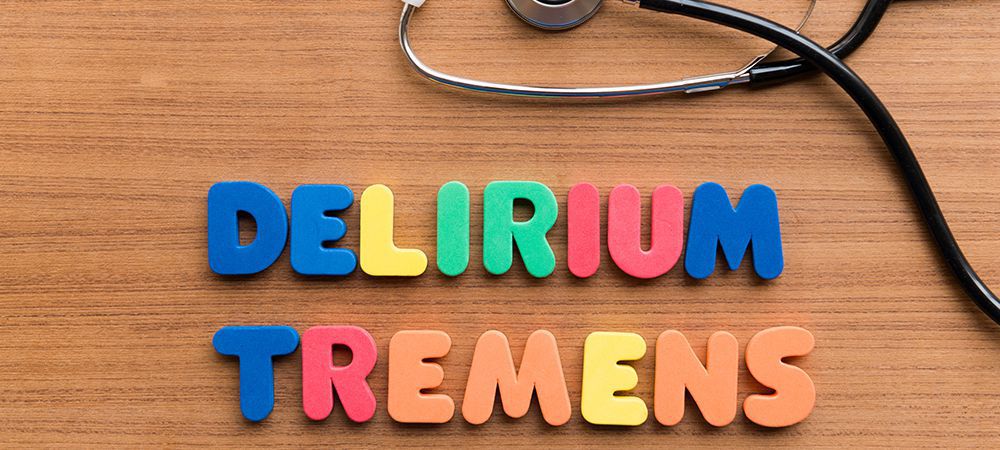
The Stages Of Alcohol Withdrawal And Their Symptoms
Alcohol is one of the most difficult substances to give up. This is partly because alcohol use is so socially acceptable – even expected in some cases – and partly because of the nature of withdrawal. Quitting any substance can be an unpleasant experience. In the case of alcohol, it can actually be dangerous if the right supports are not in place.In this article, we will talk about the stages of alcohol withdrawal, what symptoms you may experience, and crucially, how you or a support person can tell when it’s time to call for medical help.
What Is Alcohol Withdrawal?
If you have been drinking large amounts of alcohol on a regular basis, you will have become used to it. You may still feel the effects of intoxication, but your body and mind will have reached the point of needing that alcohol in order to function. You may feel anxious or unable to concentrate without a drink, the smallest amount of stress can result in cravings, your hands may tremble until you’ve satisfied that thirst.
Why Does Alcohol Withdrawal Happen?
Most Canadians who drink do so in mild or moderate amounts – they do not experience withdrawal simply because they do not drink enough for their bodies to start relying on alcohol. The problem of withdrawal arises when you consume significant amounts of alcohol on a regular basis over a sustained period of time.
The more you drink, the more you need to drink: you may find yourself consuming larger amounts to achieve the same effects. Since alcohol is a depressant that slows down the central nervous system, your brain starts to compensate by producing what for most people would be an overabundance of natural stimulants, such as serotonin and norepinephrine.
If you abruptly reduce or eliminate your intake of alcohol, your body ends up with a massive surge of stimulants that have no place to go. This creates a potentially dangerous imbalance in your physiological functions, such as breathing and cardiac functioning.
The Stages Of Alcohol Withdrawal
Alcohol withdrawal should be seen as a process that happens over a period of time rather than an event that is over and done with quickly. Many people believe that withdrawal is the process of the alcohol working its way out of your system, but it is more complex than that. Because of the physiological and neurological changes that happen, alcohol withdrawal includes a period of the brain chemistry trying to get itself back to the way it was prior to the period of alcohol abuse.
Stage 1: Tremors

- Shaking or tremors
- Nausea and vomiting
- A raised pulse and/or elevated blood pressure
- Insomnia, nightmares or vivid dreams
- Hyperventilation
- Anxiety and/or irritability
These symptoms typically peak after about 24 hours before starting to ease off on the second or third day. Some symptoms, such as insomnia and mood disturbances, can persist for several weeks or months.
Stage 2: Alcohol Withdrawal Seizures
Seizures can start between 6 and 48 hours after the last drink, although the risk is at its highest after around 24 hours. The frequency, duration, and severity of seizures depends on how heavily and frequently you used alcohol.
Stage 3: Alcohol Hallucinosis
12-24 hours after your last drink, you may see the onset of visual or tactile hallucinations. In other words, you see or feel things that are not there. Common hallucinations include the illusion of small moving objects and the sensation of crawling insects under the skin. These symptoms can last for up to two days.
The Dangers Of Delirium Tremens
Delirium tremens is the most severe form of alcohol withdrawal. People at highest risk are those who have used alcohol extremely heavily over a long period of time, and people with a prior history of substance abuse. Delirium tremens causes dangerous changes in key physiological functions, like breathing, circulation, and temperature regulation. It can also temporarily reduce blood flow to the brain, leading to long-term cognitive difficulties. If left untreated, it can lead to catastrophic health effects and death.
The symptoms of delirium tremens include the following:
- Dehydration: for a quick test, press down on a fingernail until it blanches. If it does not return to its normal colour immediately after being released, the individual is probably experiencing dehydration.
- Confusion or disorientation
- Stupor, extreme drowsiness or loss of consciousness
- Nervous or angry behaviour
- A racing pulse and short, rapid breaths
- Sweating to the point of soaking
- Seizures
- Hallucinations
If you are with someone who is experiencing these symptoms, it is critical that you get medical care for them as quickly as possible.
 Planning For Safe Alcohol Withdrawal
Planning For Safe Alcohol Withdrawal
While it may seem that people with alcohol addictions are caught between two bad options – to quit or not to quit – there are things you can do to ensure your safety during the withdrawal process. Here are some steps you can take:
- Book yourself into a detox facility. This way, you will have doctors and nurses taking care of you throughout your withdrawal, and treating withdrawal symptoms as they arise.
- If you are unwilling or unable to go to detox, at least make sure you’re not alone. Go to a friend or family member’s house, or have someone stay with you. It is important to ensure that there is someone with you who can call for medical help should the need arise.
- Keep a list of emergency phone numbers with you. This could include your local hospital, your doctor, and some emergency contacts.
- Make sure there is an easy way to get to the hospital. Whoever is with you should know the route, and the car should have gas in it.
- If you’re taking prescription medications, write down the names and dosages so that medical professionals can give you appropriate care.
Getting Help For Alcohol Use Disorders
Withdrawal is just the first step in your recovery from an alcohol addiction. At 1000 Islands Rehab Centre, we will get you through your detox safely, and then as a top addiction rehabilitation centre we will put together a customized addiction treatment program that will get you on the path to recovery. Call us today for more information, or to book your spot.

 Planning For Safe Alcohol Withdrawal
Planning For Safe Alcohol Withdrawal